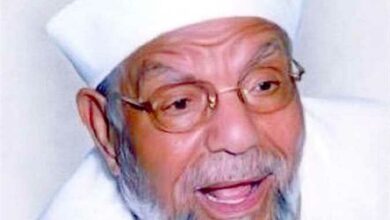Two members of Egypt’s ruling military council appeared Wednesday on one of Egypt’s most widely-viewed news talk shows in an attempt to build a new rapport with the nation and address the army’s image, which suffered a serious blow after a recent bloody attack on a Coptic-led protest.
For almost three hours, generals Mohamed al-Assar and Mahmoud Hegazy, members of the Supreme Council of the Armed Forces (SCAF), entertained questions from diplomatic talk show host Mona al-Shazly and combative opposition journalist Ibrahim Eissa.
As expected, the show began with an influx of questions about clashes that erupted between the military and Coptic-led protesters on 9 October in which at least 28 were killed and more than 300 injured. The incident marked a turning point in the relationship between the army and the people, since for the first time since the outbreak of the revolution, the armed forces were directly implicated in killing protesters. Images of armored personnel carriers running over demonstrators and reports of the use of live ammunition elicited an unprecedented uproar.
Yet the generals refused to deviate from their initial position expressed in a press conference last week, insisting that the military police were not armed with live ammunition.
“We affirm that the forces were not armed and they only carried false bullets,” said Hegazy. “If we have had the intention to use violence, we would have done that long time ago.”
The guests also sought to give a different interpretation of scenes depicting people crumbling under the wheels of armored vehicles.
Assar contended that the killings were not intentional. “The soldier who was inside that armored vehicle saw another vehicle set on fire and saw his colleagues being dragged out of their vehicles and attacked. It was very normal for him to try to run away,” Assar told the Al-Ashera Masaan show, repeating the military’s previous statements on the matter.
“Ultimately, he drove up and went back and pulled the breaks twice,” he added.
In the meantime, Assar put the blame on “a group of aggressors whom we will keep chasing …” He tried to challenge the common perception of the incident as a military-led attack on the Coptic minority, saying, “Copts are part of this society. The armed forces are possessed by the people, Christians and Muslims, and it is impossible to describe this incident as [a clash] between the armed forces and Copts.”
Both generals were not just content to defend the military police, as they went on to fend off criticism of the SCAF-appointed interim cabinet led by Prime Minister Essam Sharaf. The interviewees gave excuses for the cabinet, arguing that it is dealing with a plethora of challenges including a torn security apparatus and stubborn social and economic grievances.
“The cabinet took charge when things were really bad. Can I judge it that easily and say it is not efficient?” Assar asked. “We should not be expecting much from a cabinet that faces all these challenges.”
When former President Hosni Mubarak stepped down in February, he ceded power to the SCAF. Shortly afterward, protesters rallied to demand the ouster of Mubarak-appointed Prime Minister Ahmed Shafiq. Youth groups had then nominated a number of politicians to take over the cabinet. Sharaf, a former transportation minister who joined protesters in Tahrir Square during the 18-day uprising, was among the nominees.
In March, the military appointed Sharaf as prime minister. Many feel that Sharaf is a big disappointment, due to his failure to address the security vacuum and pressure the military to meet the demands of the revolution. Demands to sack him and appoint a more competent prime minister have been echoed by most political forces.
The military, however, has ignored these demands.
The interview did not only revolve around questions offered by the two hosts. The SCAF generals also had to answer queries sent electronically by viewers and read by Shazly and Eissa. Many of these queries questioned the SCAF’s governing performance and accused it of reproducing Mubarak’s policies. Whether the military is serious about transferring power to civilians at the end of the transitional period was one pressing question.
“We do not want to stay in power. We want to execute the first step of transferring power by holding elections. If we had wanted to stay in power, we would not have insisted to hold elections,” Assar said.
In recent weeks, several political groups have expressed fears that the SCAF may refrain from handing over power. These fears were aroused by two developments in particular: the appearance of Field Marshall Hussein Tantawi, Egypt’s de facto military ruler, in a suit in September, and the prolonging of the transitional period.
Last month, Armed Forces Chief of Staff Sami Anan revealed a new timetable for the transitional period during a meeting with the leaders of 13 political parties. According to the military-set schedule, the transitional period, which was initially set to end in August, may last until mid-2013. Observers suspect that SCAF could extend the transitional period to make enough time to groom Tantawi as a presidential candidate.
Eissa asked if the SCAF intends to field a military candidate for the presidency.
“No, we have said it several times; we are committed to hand power over to an elected civilian government,” replied Assar.
At the end of the show, Assar called on Egyptian youth to engage more heavily in the upcoming parliamentary elections, in what appeared to be an attempt to renew relations with young activists who spearheaded the revolution and who have recently risen as the most outspoken critics of the generals.
Assar also announced that the SCAF will cover the application fees of all parliamentary candidates under 40 years old. Plus, the military will take it upon itself to publish campaign pamphlets for young candidates in its press houses, he added.




